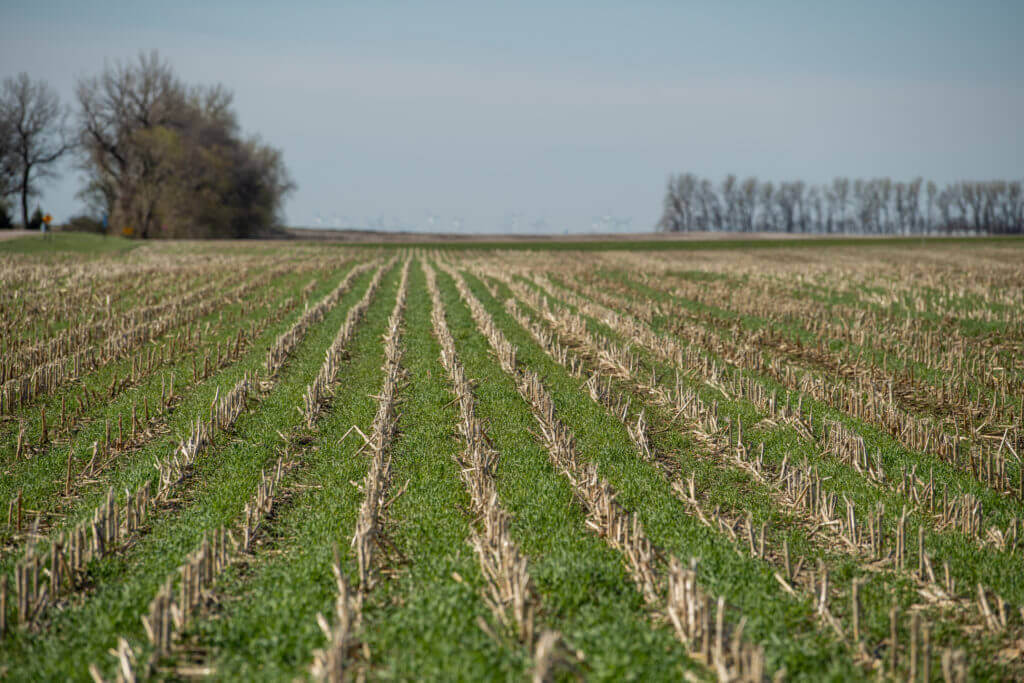Vegetative cover crops as a nitrate reduction strategy for tile drainage
Lead Researcher: Jeff Vetsch, Researcher at the University of Minnesota’s Southern Research and Outreach Center in Waseca

Research shows cover crops are effective in reducing nitrogen loss.
Vetsch is focused on the role cover crops play in reducing nitrogen loss to surface waters through tile drainage. The study is finding vegetative cover crops are indeed effective management strategies to reduce nitrate losses in drainage water.
Vetsch and his team tested the impact of no cover crops, cereal rye cover crops, and annual blend cover crops on a corn-soybean rotation using appropriate rates of N fertilizer. The cover crops were overseeded in standing crops at around R5 for corn and just before leaf drop for soybeans.
Using a nitrogen rate prescribed by the MRTN method (about 120 pounds), preliminary analysis found cereal rye, terminated in the spring, produced a 60-percent reduction in nitrate concentration and load in drainage water, compared to no cover crops. The annual blend variety produced only a marginal reduction in nitrate concentration.
Vetsch hypothesized cereal rye was proven more effective due to its hardiness in Minnesota’s climate. While cereal rye has the ability to overwinter, the annual blend dies off with the first frost. In the study, the rye was terminated in the spring, having survived off the nitrogen it was able to scavenge in the soil.
With promising early results, Vetsch said future years of the study, taking place in Waseca, will be crucial in confirming cover crops are an effective strategy in reducing nitrogen loss.

